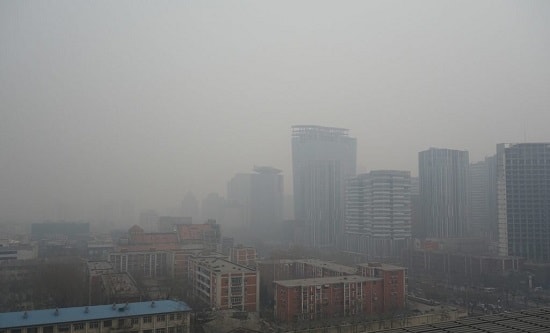
Recent studies point to a strong correlation between areas with the highest levels of air pollution and deaths from Covid-19. Research by Yaren Ogen published in 2020 looking at nitrogen dioxide pollution and Covid-19 death rates in 66 regions of Italy, Spain, France and Germany found that 78% of all Covid-19 deaths occurred in the five most-polluted regions (four in Northern Italy and one in central Spain).
Nitrogen oxides (NOx) are toxic gases emitted by vehicle exhausts. Prolonged exposure inflames the lining of lungs and reduces immunity to infections. This could explain the higher incidence of death – if people have pre-existing lung conditions due to long-term exposure to air pollution and then contract Covid-19, their lungs could be more susceptible to the damage caused by the virus.
A pre-printed study by Xiao Wu et al looked at fine particulate matter, another component of air pollution. Areas in the US with increases in pollution in the years before the pandemic were correlated with higher Covid-19 death rates. This study was adjusted for other factors that could explain the association – such as age, ethnicity, household income and population density.
Most underrated health problem in the world
In 2017 the Lancet medical journal published its Commission on pollution and health, which estimates that nine million people died prematurely in 2015 as a result of diseases caused by toxic air, equivalent to one in six premature deaths globally. This is far greater than any other cause of premature death and is more than triple the number of premature deaths from AIDs, malaria and tuberculosis combined.
The report concluded that that the real total could be millions higher because the links between pollution and various health conditions such as dementia, diabetes and kidney disease are still being worked out. Professor Philip Landrigan, who co-led the report, described air pollution as ‘the most underrated health problem in the world’.
A study by the Health Effects Institute in 2016 found that seven billion people – 95% of the world’s population – breathe ‘dangerously polluted air’ every day. Dangerous is defined as exceeding the World Health Organisation’s (WHO) air quality guideline of 10 micrograms of PM2.5 per cubic metre (PM2.5 is any particulate matter whose particles have a diameter of 2.5 microns or less, meaning that they are small enough to pass through the lungs into the bloodstream).
Unsurprisingly, poor and underdeveloped countries, forced into rapid industrialisation without regulations or safety controls, have the vast majority of pollution-related deaths (92%) although the UK, Japan and Germany are all in the top 10 for deaths from workplace pollution. PM2.5 pollution in cities in India, Pakistan, Saudi Arabia and China easily exceeds 100 micrograms per cubic metre – ten times the WHO limit.
Diesel manufacturers – blood on their hands
NOx has been at illegal levels in most urban areas of the UK for the last decade. In London, from 2004 to 2017, the annual NOx legal limit was reached within the first week of the year. This has only started to improve slightly since the introduction of the low emission zone in 2019, although the legal limit is still breached every year. NOx emissions are directly linked to the premature deaths of around 23,500 people each year in Britain.
In 2015, German car manufacturer Volkswagen admitted that it installed ‘defeat devices’ in 11 million of its vehicles sold worldwide between 2009 and 2015. These devices deliberately evaded emissions controls by switching to lower emissions during testing but allowing the vehicles to emit up to 40 times more NOx under normal driving conditions (see FRFI 248).
Volkswagen was not alone in disregarding official regulations on emissions. A report in 2016 found that 97% of 250 diesel models tested were in violation of EU limits. Had this limit been respected, an estimated 6,800 premature deaths could have been avoided in the EU, where years of tax breaks for diesel cars had caused their popularity to soar.
We are told that capitalism will develop ‘cleaner’ technology that will reduce pollution but there was a deliberate decision by car manufacturers and EU governments to promote diesel cars from the late 1990s onwards, instead of investing in electric or hybrid vehicles. Diesel cars, which emit less CO2 than petrol cars but far higher amounts of life-threatening NOx, received tax breaks and were allowed to emit more than petrol cars.
In the UK there is one car for every two people. At current growth rates, by 2050 there will be 3 billion cars in the world. Even if many of these are electric cars, producing the energy and raw material for these is not sustainable and will generate huge amounts of pollution of all kinds – particulate matter, greenhouse gases and NOx. The only rational alternative is mass investment in public transport together with far higher regulations on emissions, but the logic of capital would not allow such a limitation on car manufacturers’ profits.
Samuel Vincent




